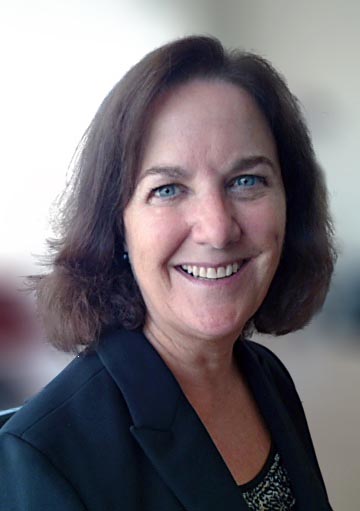Q&A with Joanne Huebner on adult literacy
Adult literacy crisis in the U.S. needs far more attention, says SOE adult learning expert

Last week was National Adult Education and Family Literacy Week, which raises public awareness about the need for and value of adult education and family literacy and supports access to basic education programs for the 36 million U.S. adults with low literacy skills.
The Virginia Adult Learning Resource Center, a program of the Literacy Institute at the School of Education at Virginia Commonwealth University, provides adult education and literacy resources, publications, and training for adult education practitioners in Virginia. Joanne Huebner, manager of the Virginia Adult Learning Resource Center, recently discussed its work and the pressing need to address the adult literacy crisis.
What is the Virginia Adult Learning Resource Center and what sort of work does it do?
The Virginia Adult Learning Resource Center (VALRC) strengthens Virginia’s adult education and literacy system through professional development, resources, information dissemination, and collaborative projects with other Virginia workforce agencies. We provide face-to-face and online trainings for Virginia adult education teachers and program staff; manage the GED® Virginia website and GED® Helpline; and support the development and expansion of the PluggedInVA career pathways program for adults.
The VALRC’s work is funded primarily through a grant from the U.S. Department of Education, Office of Career, Technical, and Adult Education. We also participate as a partner on other workforce agency grants in Virginia. Our staff consists of educational specialists in the areas of high school equivalency instruction and testing, standards-based instruction, workforce skills development, adult learning disabilities, English language instruction, and adult basic education/literacy.
How big of a problem is adult literacy in the U.S. and Virginia? Why is it important that we help address it?
In my opinion, adult literacy is a public awareness problem, in Virginia and the U.S. as a whole. According to ProLiteracy, the leading membership organization advancing the cause of adult literacy and basic education in the nation, only 59 percent of Americans are even aware it is a problem, so solving it is a difficult issue. In addition, the definition of literacy is constantly evolving. Historically, literacy or the state of being literate has been defined as having the ability to read and write, skills which are generally associated with being qualified for entry-level employment.
The definition of functional literacy has often been tied to meeting grade-level expectations. But in today’s fast-paced and increasingly technological society, the definition has expanded. The Survey of Adult Skills (PIAAC) defines literacy as “the ability to understand, evaluate, use, and engage with written text to participate in society, to achieve one’s goals, and to develop one’s knowledge and potential.” While most jobs require at least 12 years of education, that benchmark is quickly becoming outdated as employers increasingly require additional workforce training or at least two years of postsecondary education.
Are there ways people can help or get involved in supporting literacy education in Virginia that you would recommend?
My first goal would be to raise awareness that adult literacy is a problem in the U.S.; become knowledgeable and share the word. There are several local, state, and national programs that are part of a network of organizations that work every minute of every day to address the adult literacy crisis:
- ProLiteracy
- National Coalition for Literacy
- Virginia Adult Learning Resource Center Regional Providers
- Virginia Department of Education, Office of Career, Technical, and Adult Education
Donate to a literacy organization such as the Virginia Literacy Foundation.
Nominate yourself or someone you know to serve on the Virginia Adult Education Advisory Committee. The advisory committee consists of members who volunteer their time, talents and knowledge to help strengthen adult education and literacy programs.
Encourage your workplace to contact your local Virginia Career Works center to provide our Virginia adult learners with a pathway to learning that culminates with sustainable-wage employment.